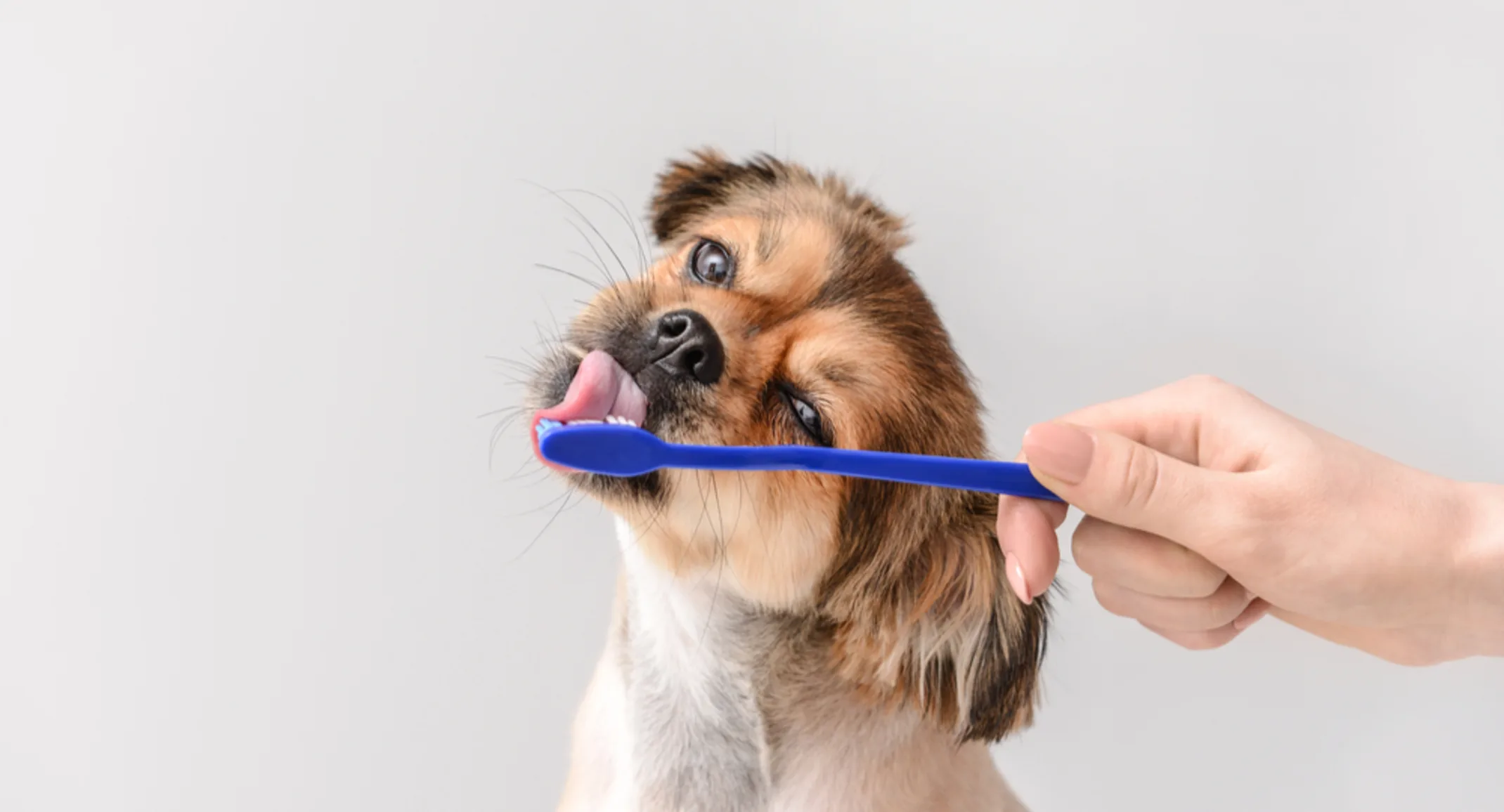Risks of Poor Dental Care
Dentistry

Risks of Poor Pet Dental Care
When your pet has poor dental hygiene, they are at a significant risk of both dental and wider health problems. These include the following:
Dental decay
Unlike humans, decay isn’t the most common problem facing pets with poor oral hygiene. In fact, it represents less than 10% of all dental problems. Nevertheless, it can happen and if it does, it can be painful and debilitating for your pet. It can also cause them to lose their tooth which can affect the way that they use their teeth and mouth.
Periodontal disease
Periodontal disease, aka gum disease, is the biggest problem facing our pets. By the age of 3, research suggests that 70% of cats and 80% of dogs will have some form of periodontal disease. This inflammatory condition occurs when plaque that has formed on your pet’s teeth as a result of poor brushing spreads onto the gum tissue, inciting an autoimmune response from your pet’s body to deal with it. This kills the bacteria but also causes the destruction of other tissues including gum and bone. Infection in the tissues ensues, causing pain whilst the gums continue to pull away from the teeth, exposing the roots, periodontal ligaments, and bone. When these structures are affected, the teeth can become loose and fall out. Some of the consequences for your pet, aside from serious pain, include bad breath, bleeding gums, excessive drooling and dropping food.
Wider health problems
Unfortunately, moderate to severe periodontal disease has been linked to the development of wider health problems in animals too. This is because the inflammatory response can enable bacteria to enter the bloodstream and pass around your pet’s body to other organs and systems. The heart and liver have been shown to be especially likely to develop inflammation as a result of dental disease, with evidence suggesting that wider health conditions such as high blood pressure, heart disease, complications relating to diabetes and more. Taking proper care of your pet’s teeth can help protect their long-term health and wellbeing as well as their teeth.
How to Support Your Pet’s Dental Care
Fortunately, there are a number of different things that you can do to help ensure that your pet’s teeth and mouth are as healthy as possible. These include the following.
Brush their teeth at home
Before you panic – it’s not as hard as it sounds. Brushing your pet’s teeth remains the best way to remove bacteria and food debris and prevent problems like decay and periodontal disease. You can use a human or pet toothbrush, or even a section of cloth, but be sure to only use veterinary-approved toothpaste since human varieties are toxic to animals. Your vet will be happy to show you the best techniques to thoroughly clean your pet’s teeth.
Give them dental chews and chew toys
Chewing is one of the best ways to support your pet’s dental health. The action, plus the naturally-abrasive texture of chews and chew toys, acts like brushing and removes bacteria, food particles and even plaque that may have formed on the teeth. It also stimulates saliva production, which helps to wash away nasties from their teeth.
Visit your vet for dental check-ups
Dental check-ups aren't just for humans. Many vets also offer dental services for pets, including regular evaluations of the health and condition of their teeth as well as any treatment that may be required. Take your pet to see your vet for a dental check-up at least once every 12 months. This will also enable any developing problems to be spotted early and before they have a chance to cause permanent damage to your dog’s teeth.
For more information about the risks of poor pet dental care, or for further advice on the best way to take care of your pet’s teeth, please contact our veterinary team in Roanoke, VA who will be delighted to help.
